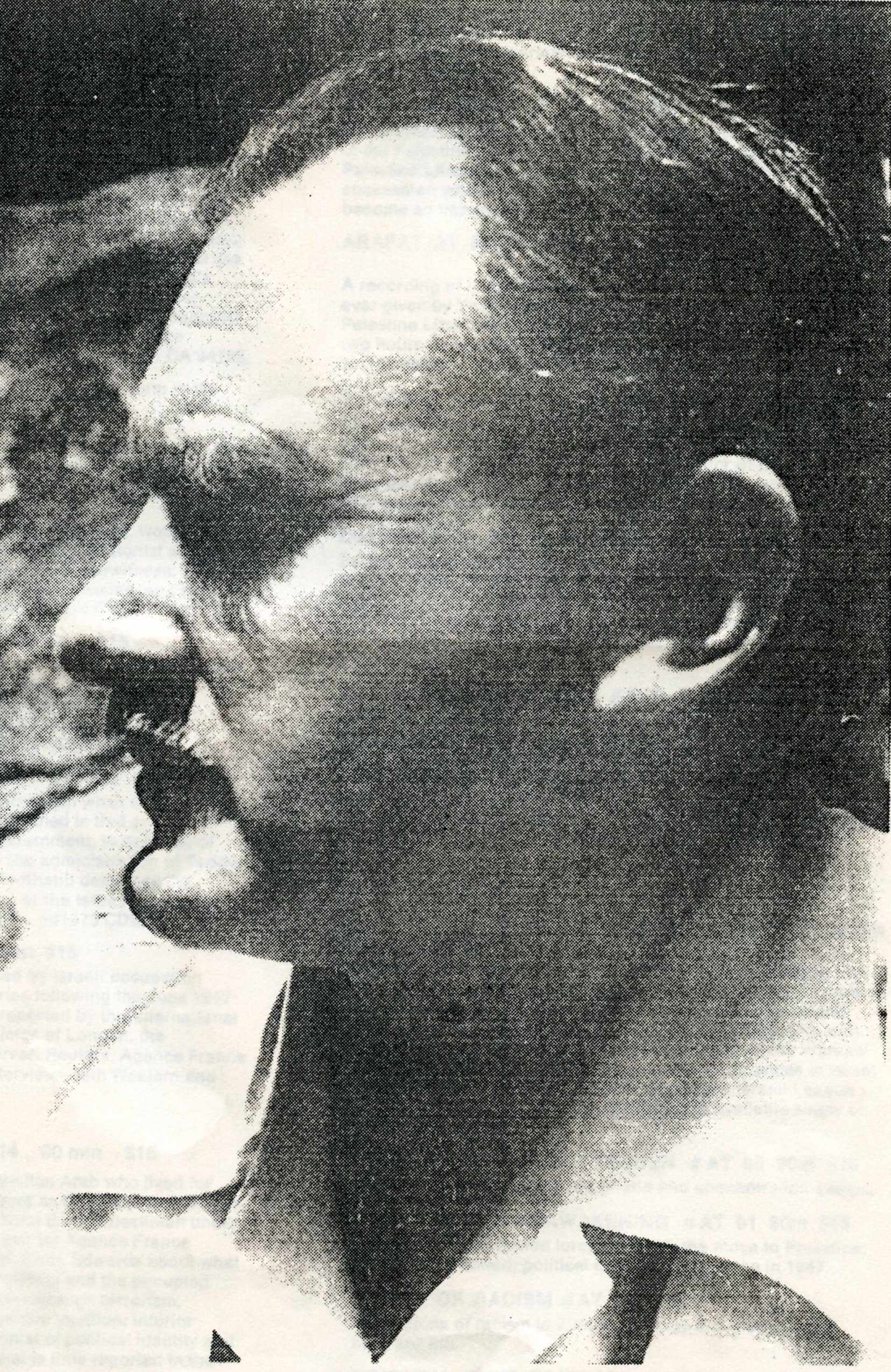Independent Collections
These collections were produced by independent journalists. Many of these recordings make up the bulk of the original collection of the Freedom Archives.
Subcollections
-
Colin Edwards Collection
Materials representing the life-work and journalism of a Welsh radio correspondent and journalist who worked for Pacifica stations, the BBC and many other broadcasters. -
Colin Edwards Free Speech Movement
This collection is produced by journalist Colin Edwards and represent a comprehensive account of the Free Speech Movement and its effect on the political climate of UC Berkeley. -
Programs produced by Kiilu Nyasha
Kiilu Nyasha is a revolutionary journalist and former member of the Black Panther Party. Kiilu still hosts Freedom Is A Constant Struggle, which now appears as a TV program. -
“Nothing is More Precious Than…” a news magazine including music and poetry
KPFA weekly news program running from 1973-1976 featuring in-depth coverage of liberation struggles around the world. -
“The Real Dragon” a news magazine including music and poetry
Real Dragon was a radio program broadcast on KPFA from 1971-1973. This news show focused on issues of national liberation, political prisoners, Vietnam and other major national and international topics.
Documents
10 Documents Found
Date: 10/1/1969Call Number: CE 351AFormat: 3 3/4 ips Side AProducers: Colin EdwardsCollection: Colin Edwards Collection
Syrian Ambassador to the UN, George Tuma, discusses American ignorance of the Middle East. Criticizes Zionist propaganda for falsely claiming it liberated the Occupied Territories and wanting peace. Discusses the forced removal of Palestinians from their homeland which the International community supports. Discusses the righteousness of the Palestinian case in International Law.
Two leading experts discuss serious crisis in plight of Palestinian refugees and the role of the United Nations. Dr Musa Alami was one of the most well known and respected Palestinian nationalist leaders. He describes a "Boystown" project which John H. Davis was also involved with.
Call Number: CE 472Format: 1/4 7 1/2 ipsProducers: Colin EdwardsCollection: Colin Edwards Collection
Series of actualities and portions of interviews on Palestine liberation and organizations, the refugee situation, and the positions of Arab nations.
Interviews on the conditions for refugees in Jordan and Lebanon following the 6-day war.
Detailed Interviews with two spokesmen for the DPFLP. Also interview with a man who works with refugee aid.
Date: 3/1/1971Call Number: CE 480AFormat: Cass AProducers: Colin EdwardsCollection: Colin Edwards Collection
Interviews with Swedish doctor and others on conditions for Palestinian refugees, including emphasis on children
Call Number: CE 560Format: 1/4 3 3/4 ipsProducers: Colin EdwardsCollection: Colin Edwards Collection
Colin Edwards interviews Pat Rambo and Cecile Belanger, two physiotherapists stationed at the Qui’ Nhon Rehabilitation Center in Vietnam. Built in 1970, the Qui’ Nhon Rehabilitation Center was a five-year project run by the Canadian Rehabilitation Advisory group. Qui’ Nhon, as a refugee city, experienced an influx of people suffering from serious injuries, loss of limbs and polio due to the war. Canadian doctors would advise and train Vietnamese students so that they, the Vietnamese, would be able to run the center themselves. Rambo and Belanger describe the Leprosarium ran by French Franciscan nuns. The self-contained community was home to 1,000 lepers.
This tape contains speeches from the UN Security Council following the Israeli invasion of Syria in 1967. Voices include the Soviet delegate, the Indian delegation who along with Ireland lost troops in the invasion, the delegation from Bulgaria, the delegate from Syria and the delegate from Israel. The last portion of the tape features the delegations from Israel and Syria, which contains Israeli justifications for the invasion and breaking news from the Syrian delegation. The tape ends with the delegation from USSR asking the delegate from Israel to explain why they have not withdrawn their forces despite a unanimous appeal for a ceasefire. The delegation from the United States and the USSR uses that to further claim that Israel is just an extension of American/Western imperialism.
1. On Arab and Israeli Attitudes
2. Some observations on the same
3. Condensed Version of #1
4. Condensed Version of #2
In the first segment Colin explores the dynamics of the Israeli-Palestinian conflict by articulating the views of each side. In the second segment he talks about his perspective on the issues based on his experience in Palestinian refugee camps, Palestine military camps, the UN, etc. Key topics include the importance of American support to Israel and Arab disillusionment with the UN and Big Powers.
1. On Arab and Israeli Attitudes
2. Some observations on the same
3. Condensed Version of #1
4. Condensed Version of #2
In the first segment Colin explores the dynamics of the Israeli-Palestinian conflict by articulating the views of each side. In the second segment he talks about his perspective on the issues based on his experience in Palestinian refugee camps, Palestine military camps, the UN, etc. Key topics include the importance of American support to Israel and Arab disillusionment with the UN and Big Powers.
10 Documents Found






